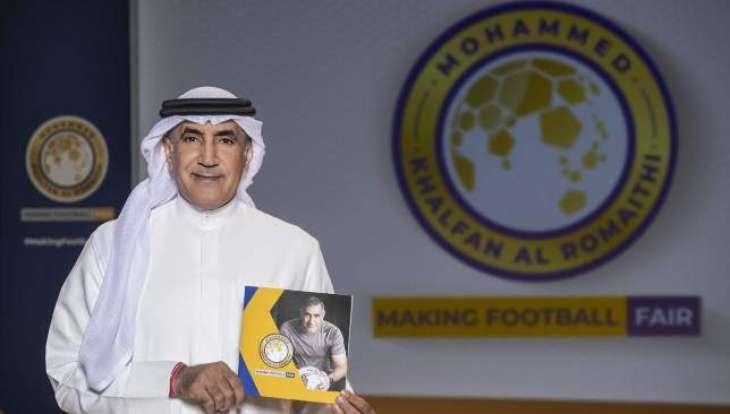By Paul Nicholson
March 11 – The credentials and track record of the UAE’s Mohammed Khalfan Al Romaithi in his bid to win the AFC presidency next month are coming under increasing scrutiny with growing concern that his geo-political motivation for the role outweighs his commitment to football in the region.
Although already a member of the AFC’s executive committee, Al Romaithi has attended just four executive committee meetings out of the 14 he should have been present at.
It is a lack of commitment to prioritising a Confederation outlook that is seemingly echoed in his resignation in 2017 from the chair of the AFC’s development committee.
Al Romaithi took that decision following his bitter disagreement with an AFC decision stipulating that the Champions League fixtures had to be played home and away. That meant the UAE, and other countries involved in the economic blockade of Qatar, would have to play in Qatar and host Qatari teams. A position that is in direct opposition to his country’s political agenda. It is also a position that is in opposition to the AFC’s and FIFA’s position on football solidarity.
Such was Al Romaithi’s anger at the time that he threatened to pull the UAE and its clubs out of the AFC and go and play in African competition. Now he has made a U-turn (at least in terms of quitting the AFC) and wants to be the AFC president.
The backing of the UAE government for Al Romaithi’s bid is coming via a $320 million underwriting of a cash gift to AFC federations in return for their vote come the election. It is an unprecedented offer in global football and what is essentially a merging of any boundaries between politics and football.
Indeed, much of Al Romaithi’s campaign is being fought through government channels, opting often to lobby government sports ministers and heads of state through political channels, rather than through football channels where he appears to be considerably less comfortable.
How secure the $320 million offer in his manifesto is, is open for debate with track records suggesting that promises, even contractual ones, are not always backed up by reality. As part of its hosting bid for the 2019 Asian Cup in the UAE, a guarantee was made to deliver two new sponsors to the AFC for the four-year period 2017-2020. Abu Dhabi Airports and Abu Dhabi Duty Free came on board but after just one year the sponsorships were cancelled following the AFC ruling on clubs in the Champions League having to play home and away.
The issue for Al Romaithi to overcome is where the boundaries of football vs national interests would actually lie. It would likely be a similar conflict for his geo-political and football rival in the election, Qatar’s Saoud Al-Mohannadi.
They are both up against the incumbent AFC president Shaikh Salman bin Ebrahim Al-Khalifa who has built the confederation around a platform of unity and sustainable football development.
At the AFC’s last congress in 2018 he warned of the dangers of political influence undoing the work of the confederation and breaking the AFC’s unity and strength.
A football vote along football lines would likely deliver a clear winner in the election in the shape of Salman. A politically influenced election with the incentive of $320 million could send a different message to football in the region and globally, one that federations can still be bought.
Contact the writer of this story at moc.l1736592203labto1736592203ofdlr1736592203owedi1736592203sni@n1736592203osloh1736592203cin.l1736592203uap1736592203


